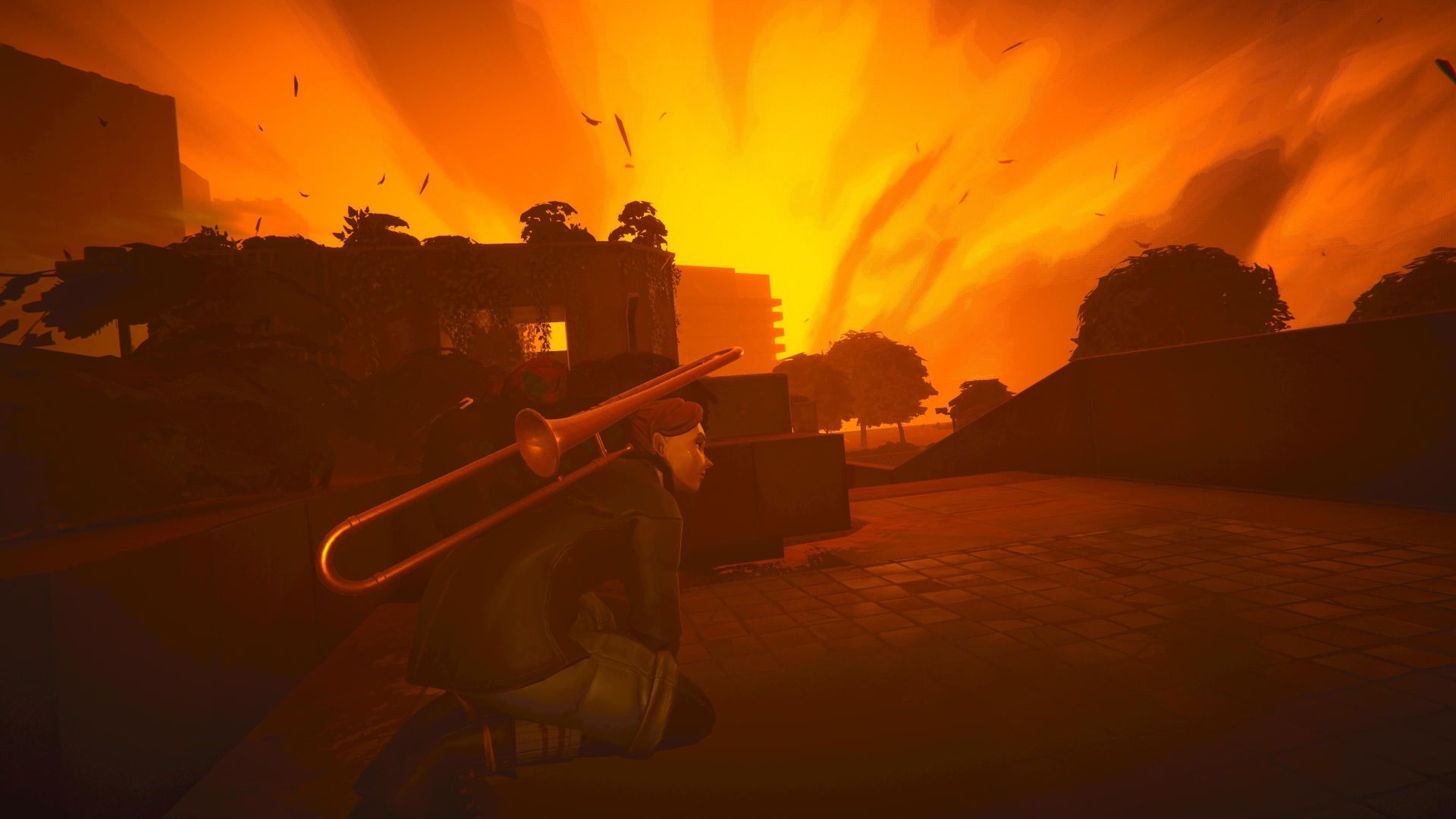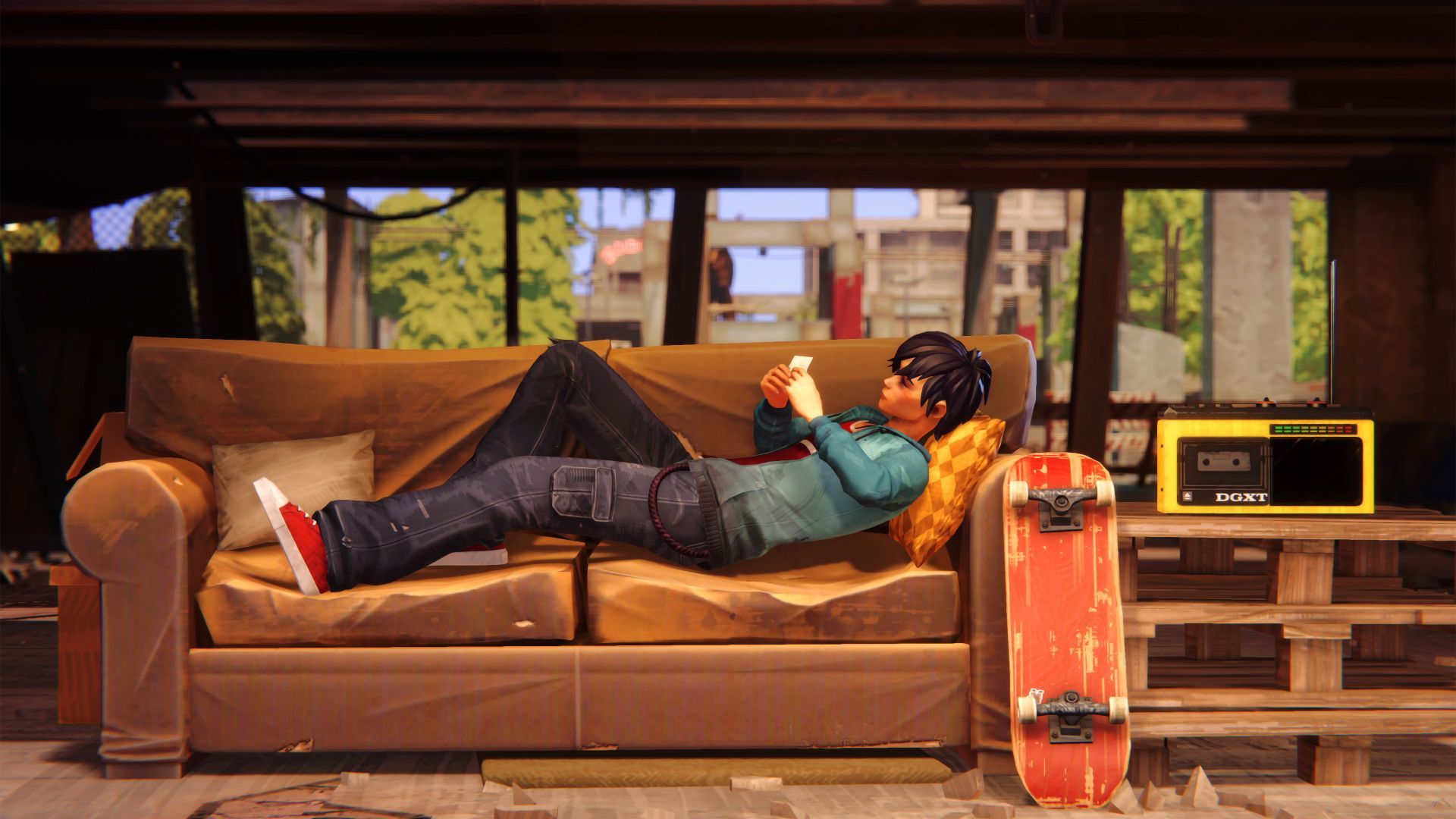When it was first announced that 2021's procedurally-generated road trip game Road 96 would be receiving a prequel called Mile 0, I admit that I had mixed reactions. Did I love Road 96? Heck yes I did. Did I want to see more of Road 96's world? That'd be welcome, sure. Did I want a prequel centered around the character of Zoe and how she came to be who she is by the start of the game? Can't say I really did. But after getting a hands-on preview of the game, can I say that I'm finally more excited for it? Well, maybe partially excited, but also interested and curious, though not without some caveats. It's a mixed bag that we'll have to get into here (and as a heads up, we will have to get into what may be some spoilers for Road 96, so maybe go and play it first if you haven't already).
Road 96: Mile 0 centers around Zoe's life before running away from home, defecting from their decadent life that comes with being the daughter of Petria's Minister of Oil. Set in White Sands, the country's most luxurious city, the game sees her beliefs challenged by her friend Kaito, the son of two of the city's regular workers. Immediately, we get thrown for a loop when the game begins with Zoe and Kaito skating on surreal landscapes, dodging obstacles and collecting tokens along the way, ending with you being graded on your performance (unless you choose to skip it). These are one of the new features, "musical rides," and their presence here can be explained by Kaito, as he isn't just a random teen, but rather the protagonist of one of developer Digixart's previous games, Lost in Harmony.
It seems odd that Mile 0 is essentially pulling double duty as a prequel to Road 96 and the sequel to a somewhat mid-tier mobile rhythm game from seven years ago, picking up after Kaito has tragically lost their friend to cancer via pollution. I'm not sure how I feel about this development, and not just because it feels like a random decision. On one hand, as a kid living in White Sands' slums with working class parents who's actually seen the class divide outside of White Sands, Kaito does feel like he adds a lot to the story, especially as he seems to be getting involved with the Black Brigades. On the other hand, the musical rides that he seemingly brings with him feel out of place, fun as it is to outrun a bodyguard who suddenly grows to giant size while "No Brakes" by The Offspring kicks in as if this were a Crazy Taxi game.
Then there are the oddities surrounding Zoe herself. For one, her character switches between being voiced in cutscenes but being limited to text dialogue when in control. Sticking to text made sense when playing as a randomly generated group of teenagers, but raises a slight question mark here, if nothing too harmful. But then there's the whole "choices matter" angle that returns from the original game, where here Zoe's actions determine whether she's more certain about White Sands/Petria or begins to doubt things. Except it seems odd to feature a narrative-altering mechanics like this when we know where Zoe winds up by the time the first game begins. And for a game supposed to be about challenging one's beliefs, it seems odd that you can pretty much choose to play Zoe as an anti-authoritarian rebel right off the bat, as if she's already questioning things, making later dialogue where she's supposed to feel conflicted feeling odd.
This all may sound like I'm down on Road 96: Mile 0, but not really. It's just that I'm more confused about some creative choices so far. Plus, Mile 0 does have one thing going for it that easily has me hooked, waiting to see how things turn out, and that's the initial setting of White Sands. In the original Road 96, the locations you visit were basically a string of seedy bits of Americana spread throughout a desert wasteland, and you visited them while playing as your average teenager. Here, things are nicely flipped around. Now you're in a gated city populated by various folks, and playing as one of the city's most recognized citizens. This means that regardless of your actions, people will comment on them. Bystanders react to Zoe tagging any walls. Security cameras snap shots of them, announcements are made. Upper class and lower class folks alike react to her mere presence. It's a terrific change of pace that offers up great narrative possibilities and it all gets to be presented via a dystopian gilded cage. The final game suggests trips to other cities as well, which should prove interesting.
Outside of the musical rides, there all still a nice chunk of mini-games, just like with the original. Be it at Zoe and Kaito's hideout or throughout various parts of the city, players can try to expertly pound nails, deliver papers, spray-paint walls (with hidden cans to find in certain areas) and more. So even if things are more linear this time around, the spirit of the original games is still there in various ways, be it little slices of life or interesting characters to interact with. Road 96: Mile 0 may make for an odd detour at the moment in certain areas, but it's one that could very well pay off in the end when it comes out for PC on April 4.



